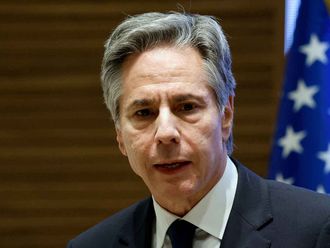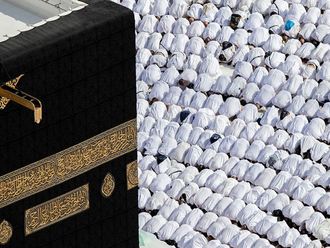Manama: The struggle against terrorists and extremists is not only a military or security issue, and many participants in the Manama Dialogue recognise the necessity to engage Daesh on a theological and emotional level, and take back control of the agenda from the terrorists.
Many of the senior politicians at the meeting are well aware that the military effort to defeat Daesh must be combined with an immediate political solution, but also that any genuine long term answer has to come from winning the battle of ideas.
This priority has been recognised in the UAE for some time. His Highness Shaikh Mohammad Bin Rashid Al Maktoum, Vice-President and Prime Minister of the UAE and Ruler of Dubai, made an important statement a month ago when he spoke of the importance of nurturing open minds, encouraging critical thinking, and stable institutions, in fighting the terrorists ideologies.
Very similar ideas were being discussed this week in Bahrain at the Manama Dialogue organised by the International Institute of Strategic Studies in conjunction with the Government of Bahrain.
Crown Prince Salman Bin Hamad Al Khalifa spoke of the necessity to resist the fascist theology of Daesh, and the importance of containing the evil ideas that allows a single man at the top of power to strip any of his followers’ place in the hereafter.
Bahrain’s Foreign Minister Shaikh Khalid Bin Ahmad Al Khalifa emphasised the importance in tackling the terrorists’ ideology in a sustainable way that will offer a winning challenge that will last for generations. “Our problem is that we have not been as enthusiastic about speaking the truth as our enemies have been about their ideas,” he said.
“We need to organise so that we can ensure that future generations will not be terrorists,” said Shaikh Khalid. “Part of this is building democracy and sustainable institutions, and safeguarding the rights of citizens. People need to feel they belong to the state.”
In this context, Shaikh Khalid spoke on the importance of open education, echoing what many others have said when looking at how to tackle terror. “We need education that is based on true Islamic values of critical thinking. We need scholars and thinkers to speak up and give voice to our heritage”
Dr Ebrahim Al Jaafari, Iraq’s Foreign Minister and former prime minister, spoke passionately about the terrible ideas emanating from Daesh that “have nothing to do with Islam. They are a plague that is spreading, and is totally removed from the peace that is in Islam.”
“But the roots of finding a cultural nemesis for this plague of Daesh is in standing up for human rights, and standing with the people as individuals against this threat,” he said.
Egypt’s Foreign Minister Sameh Shoukry who is a former foreign ministry professional, said that fighting terror also needs a culture willing to oppose it on the intellectual and emotional level.
He spoke of the importance of a recent meeting between Mohammad Ahmad Al Tayyeb, the Grand Imam of Al Azhar with Coptic Pope Tawadros when both religious leaders recognised the tolerance that is embedded in Islam.
Shoukry saw this meeting as one move in a process of denying the extremists any credibility and he was vehement on the need to change the discourse away from that dominated by the radicals and to deny any political goals that function under the alibi of religion.












